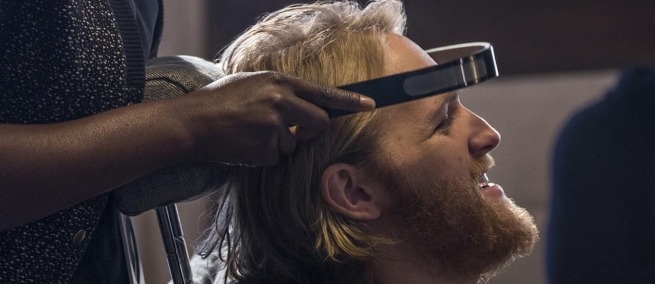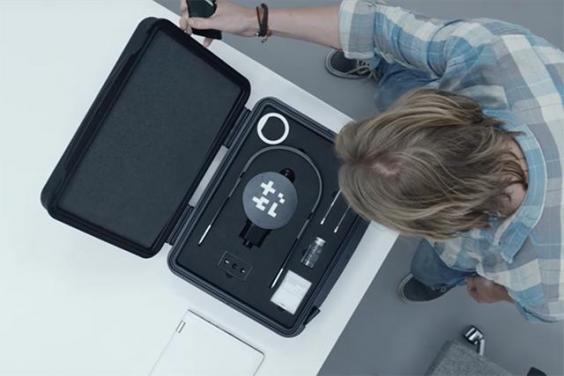
Nightmares come true in the television series BLACK MIRROR’s episode “Playtest.” A new kind of computer chip inserted into back of the head implants itself into the user’s nervous system; the device creates for the user a horrifying universe which no one else can see. An unsuspecting gamer has the chip inserted, and a house becomes populated with a huge spider, an evil friend, and a former bully. Dr. Duncan Buell, a computer scientist at the University of Southern California, wrote Science & Film, “this is in many ways the best of science fiction—because it’s so very close to science fact.”

Scientists are exploring the melding of biological with technological. Roboticists have developed a technology which links the brain’s motor neuron signals to an external mechanical appendage. “There have just recently been instances in which brain monitoring has allowed paraplegics to move robotic arms, or to actually feel the touch of Obama’s handshake,” wrote Dr. Buell. Since 2009, clinical trials have been underway for a technology called BrainGate. Connecting the brain’s motor signals to a robotic arm, this technology enables a paralyzed patient to move by thinking. “If you get to the point of having some sort of brain implant, it would be really cool to be able to think something and have it happen without having to do it,” Dr. Buell continued on the phone. “Along those lines, a group has developed a skull cap people can put on and they only have to look at letters on a screen and those letters will get typed for them. [That technology] can actually recognize the brain wave that says, I’m looking at the letter A.” These cybernetic enhancements are currently being researched to aid patients who need them in order to function at least semi-autonomously.

BLACK MIRROR episodes seamlessly blend technological advancements into fictional worlds. In “Playtest,” writer and series creator Charlie Brooker imagines a gaming company using these technologies. “I think this [episode] is an example of what, with enough time and effort and money, one might be able to do,” said Dr. Buell. “The question is, should we? Is this really the right direction in which we ought to push technology?” In the episode, the implant starts overtaking the gamers’ brain producing horrifying visual and auditory hallucinations. Dr. Buell continued, “these kinds of things are coming. Somewhere, something like this is going to be around certainly in ten years, and there will be something much more sophisticated even just five years out. A lot of [the research] is driven by the medical need for prosthetics, but, whether we like it or not, it is only a short jump from that to ROBOCOP.”
All three seasons of Black Mirror are available for streaming on Netflix. The episode “Playtest,” the second episode of season three, was written by Charlie Brooker and directed by Dan Trachtenberg. For more, Science & Film interviewed Dr. Buell about David Cronenberg’s EXISTENZ in which video games are crafted from biological materials and powered by the human nervous system.